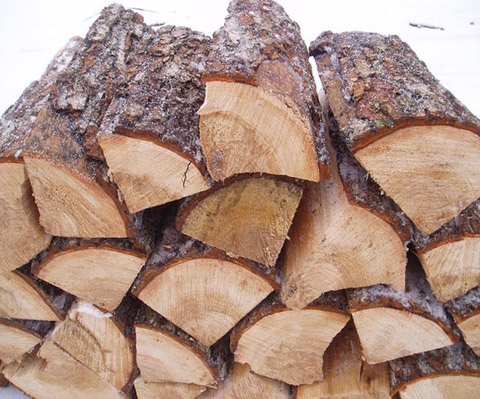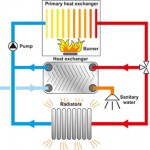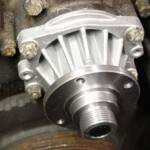Wood Burning Boilers: Pros and Cons
Some people believe that wood boilers are geared to yesterday. But that is far from the truth. In reality boilers of this type have been in the heating market for many years, but there is place for them in the future as well. They are especially useful if cheap fuel is necessary, or if cordwood is the only fuel available. And some scientists and economists call wood fuel the fuel of the future. Now there exists a wide variety of wood boilers, produced by many manufacturers, and it is possible to find among them the one best fitting your tastes and your needs.
Some of the wood boilers are partially automated, but only in regards to combustion air regulation. They are never self-igniting, and usually wood is fed to the boiler regularly – once or twice a day – during the heating season. The best way to gain maximum effectiveness is to fire the boiler hot and quickly. After the firing the heat is moved to the storage tank, and drawn from there as needed. Such approach helps to reduce the amount of unburned gas and soot the buildup from the fires.
Wood Burning Boilers Positive Aspects and Drawbacks
As all other types of heaters, wood boilers have their good and bad sides. So, the premium advantage of them is economy. Wood is a really cheap kind of fuel if compared to the energy sources for other boilers; but it is still as efficient as they are. According to recent researches, a modern wood boiler can reduce your heat costs up to three times compared with other types of heating units. And you can control the work of the boiler simply by choosing the right kind of wood. Some of them burn hot but very fast, others have long burning time, and it’s up to you to find the one perfect for your needs.
Furthermore, a boiler of this type does not take up the living space if installed outdoors. If installed indoors, though, it can provide an aesthetic advantage, as now there are many wood stoves of various shapes and colors available. Proper modern buildings are efficient in retaining heat, so one stove located approximately in the center of your home will be enough to warm up the whole house. And it may become a cozy and remarkable decor element of your dwelling.
The first of the disadvantages is that wood is a bulky kind of fuel. Compared to gas or oil, for example, it may cause serious difficulties while being transported and stored. If you are planning to use a wood boiler regularly, you definitely need quite a spacious premise for wood storage.

The maintenance of the boiler can cause certain problems too. First, a wood boiler must be manually fed with wood; second, it must be cleaned frequently and, of course, you need to allow it to cool before cleaning. It may be quite uncomfortable during the heating season. Also you are likely to need some professional maintenance, leading to additional costs.
And usually boilers of such type wear out or degrade quicker than the others, and they may be quite difficult to dispose of or recycle.
Friendly or Hazardous?
Discussions are still going on as to ecological impacts of these boilers. As wood is boiled, considerable amounts of carbon dioxide are emitted into the air. Actually it is a phase of a balanced carbon cycle, as trees need carbon to grow and live. So one opinion is that wood boilers are completely environmentally friendly. On the other hand, too much wood smoke disrupts the balance, thus damaging the atmosphere. So too many wood boilers may cause considerable harm. One more point at issue is that wood is renewable fuel; but care should be taken, as danger exists that it will be used quicker than renewed. To sum up, of course, wood boilers should be used, but that should be done wisely.
- popular
- new






